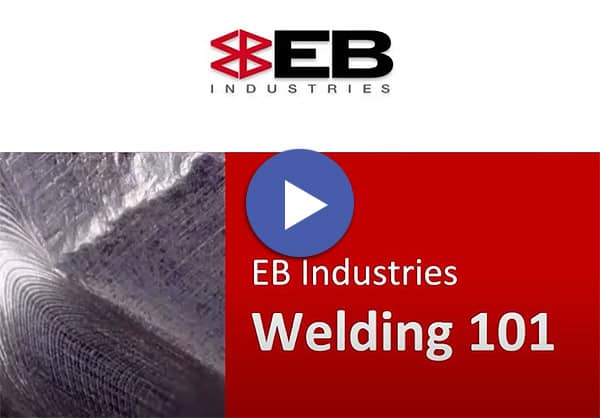Reliability is the cornerstone of aerospace manufacturing, where even minor failures can lead to catastrophic consequences. One critical aspect of ensuring component longevity and performance is hermetic sealing—a process that protects sensitive electronics and mechanical systems from environmental contamination. Among the various sealing methods available, laser hermetic sealing has emerged as a superior technology due to its precision, durability, and ability to maintain stringent aerospace standards.
This article explores the vital role laser hermetic sealing plays in improving aerospace supply chain reliability, from enhancing component longevity to reducing manufacturing lead times and costs.
Why Aerospace Requires High-Reliability Sealing
Aerospace components are exposed to extreme temperatures, high pressures, radiation and corrosive environments. From avionics to satellite communication modules, these sensitive systems must be completely sealed against moisture, oxygen, and other contaminants that could cause malfunctions.
Traditional sealing methods—such as epoxy bonding, mechanical seals and soldering—struggle to meet the rigorous reliability demands of aerospace applications. They often degrade over time, leading to potential failures. Laser hermetic sealing offers a better alternative, ensuring long-term component protection with unmatched precision and durability.
 |
WebinarWelding 101 Precision Welding Tips for Electron Beam, Laser Welding and Laser Hermetic Sealing |
The Advantages of Laser Hermetic Sealing in Aerospace
- Unmatched Seal Integrity and Longevity
- Laser hermetic sealing provides an exceptionally robust and leak-proof seal, far superior to traditional methods. The key benefits include:
- Ultra-low contamination levels: With vacuum-baked assemblies exhibiting less than 1 ppm (parts per million) oxygen and moisture, laser sealing ensures minimal oxidation or degradation inside sealed components.
- Superior durability: Unlike epoxy and soldered seals that can degrade over time, laser-welded seams are highly resistant to thermal cycling, vibration and mechanical stress.
- Material versatility: Aerospace engineers can use a broad range of materials, including stainless steel, Titanium, Kovar and aluminum for their enclosures, enabling optimal designs for performance and weight reduction.
- Precision and Minimal Heat Affected Zone (HAZ)
- Laser hermetic sealing features an extremely narrow and controlled HAZ, which is crucial for protecting sensitive electronics and sensors inside aerospace assemblies.
- No damage to nearby components: Unlike traditional methods that generate excess heat, laser sealing prevents thermal stress on nearby circuit boards, MEMS sensors and RF/microwave components.
- High precision sealing: Laser beams can be computer-controlled, ensuring consistent, repeatable and highly accurate seals, down to micron-level tolerances.
- Faster Production and Supply Chain Efficiency
- Aerospace manufacturers face constant pressure to reduce lead times and production costs without sacrificing quality. Laser hermetic sealing contributes to supply chain efficiency in several ways:
- No need for vacuum chambers: Unlike electron beam welding (EBW), which we also offer at EB Industries, laser welding does not require a vacuum environment, reducing setup times and allowing for higher throughput.
- Automated and repeatable processes: CNC-controlled glove box laser welders can execute precise and consistent welds, minimizing the need for rework and inspection.
- Flexible batch sizes: Laser sealing can accommodate small, high-mix production runs, making it ideal for custom aerospace components as well as large-scale manufacturing.
- Compliance with Aerospace Standards
- Aerospace components must adhere to stringent quality and performance specifications, including:
- Internal standards like EBI.7.5.P116 – A specification generated at EB Industries, this is consistently used to certify majority of aerospace laser sealing applications
- Custom requirements from major aerospace manufacturers, including BAE Systems, Northrop Grumman, Raytheon (RTX) and Textron.
- By meeting these high standards, laser hermetic sealing ensures that aerospace components maintain optimal performance and reliability throughout their lifecycle.
Applications of Laser Hermetic Sealing in Aerospace

Satellite and Spacecraft Electronics
Spacecraft electronics must withstand radiation, extreme temperatures and vacuum conditions. Laser-sealed enclosures protect:
- RF/microwave communication packages
- Avionics control modules
- Satellite sensors and power systems
Military and Defense Applications
Laser hermetic sealing plays a crucial role in ensuring mission-critical reliability for:
- Radar and targeting systems
- Missile guidance components
- Electronic warfare (EW) modules
Commercial and Military Aircraft Sensors
Aircraft rely on a variety of sealed sensors to monitor altitude, pressure and temperature. Laser-sealed sensors maintain:
- Long-term reliability under extreme flight conditions
- Resistance to vibration, shock, and electromagnetic interference (EMI)
A Critical Step for Aerospace Weld Reliability
Laser hermetic sealing is a game-changer for aerospace supply chain reliability, offering unparalleled seal integrity, precision, and production efficiency. By protecting mission-critical components from environmental hazards, it ensures the longevity and performance of aerospace systems while reducing manufacturing costs and lead times.
With its ability to meet the most stringent aerospace standards and accommodate advanced material combinations, laser hermetic sealing is set to remain a key enabler of innovation in aerospace engineering.
For more information, visit the EB Industries website to learn more about both laser welding and hermetic sealing services.

